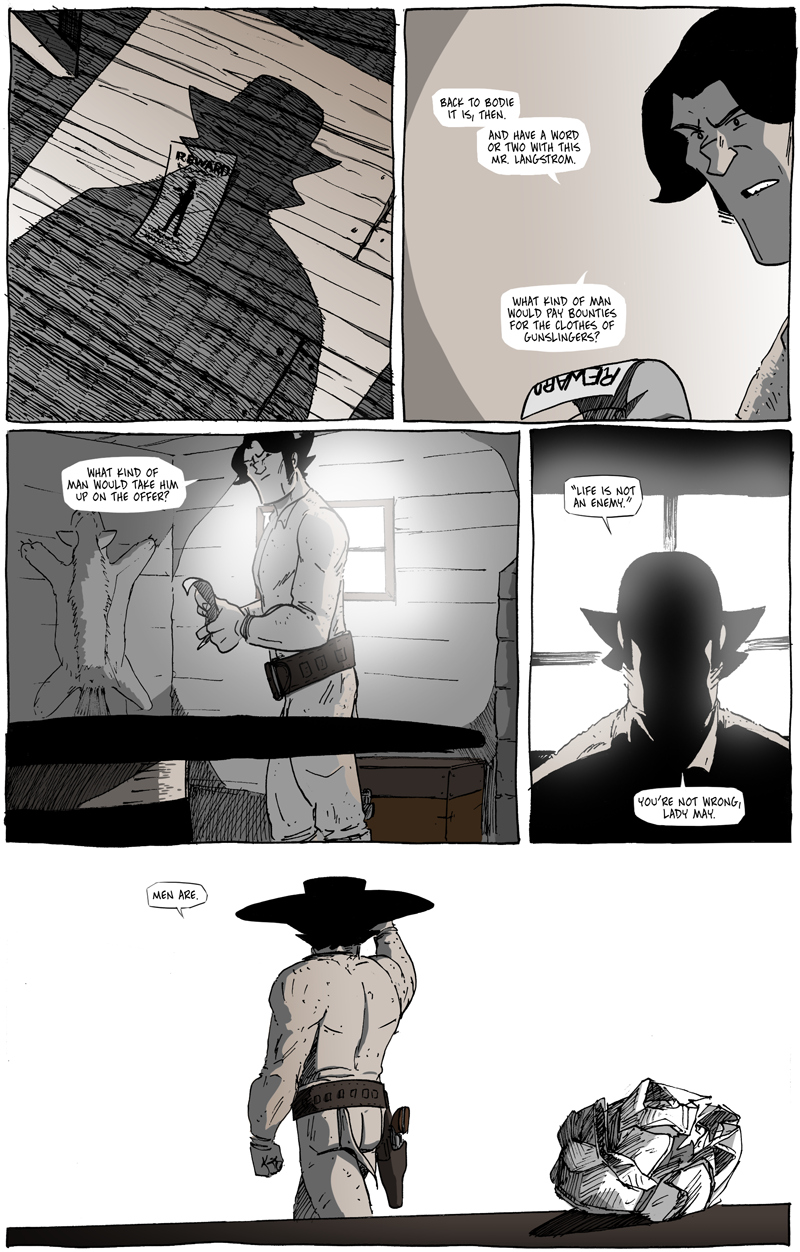What Kind of Man
When hitting the end of a chapter (only three pages left, including this one), my narrative tendencies seem to hit me in the face.
As I’ve written before, so much of my storytelling seem to rely on the principles found in the work of Homer (The Iliad and The Odyssey) that, to me, they seem almost hack. What it comes down to, I think, is that I like stories coming together not only narratively, but thematically, too. Not to bring in explanations referencing my day job, but I see introductions and conclusions in academic writing to be utilized more as thematic bookends and mirrors of each other rather than being relegated to some sort of ancient and outmoded argumentative requirement. They introduce and they conclude not only the text but the tone and the ideas, which is basically how stories work, too.
Even though we’re still in the early stages of Long John’s story, I like to view each chapter as a whole unto itself, like a good television series. I think of things like Mad Men where even though there is a larger tale being told, each episode is constructed so individually that they stand as masterful stories unto themselves. That’s how I like to write, perhaps because that’s what I like to see, read, and watch.
Indeed, a central idea of this chapter can basically be summarized by the phrase “what kind of man.” Even though it is a sentence fragment, it’s the hanging prefix of a question we all face when dealing with moral choices (with “man” being easily replaced with whatever the appropriate pronoun may be), and it reinforces––especially in the case of Long John, though he may not even realize it yet––that every person finishes their own sentence, even when the odds seem stacked against them.



Discussion ¬